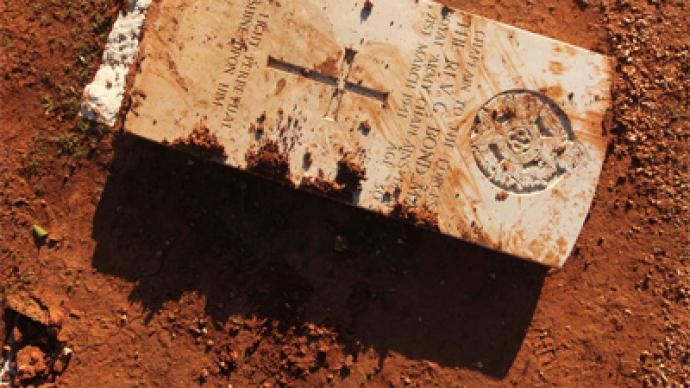As Libya’s eastern region of Cyrenaica declares its semi-autonomy from the central government, political analyst Pepe Escobar says no one will be intervening this time to stop a war among Libyan tribes should it kick off.
The Cyrenaica region, with its center in Benghazi, the cradle of last year’s uprising against Muammar Gaddafi, declared its intention on Tuesday. The new state, to be known as Barqa, will have its own parliament and police force, and wants to run its affairs independently from Tripoli.Tribes in eastern Libya have been antagonizing Tripoli for decades now, remarks Escobar. The new leaders, witnessing the growing federalism in the country, seem to want a leaf from Gaddafi’s book, he says.“We have a NATO puppet in Tripoli, Mustafa Abdel Jalil. He says he is going to intervene into Cyrenaica because people there are splintering. So what is he going to be: Gaddafi 2.0?” asks Escobar.Wherever a conflict among Libyan tribes may take the country, Western powers are not likely to get involved in Libya’s political affairs – as long as Tripoli honors the contracts, he points out.“Who cares about the future of Libya as a democracy? The country is splintered – NATO does not care. The US, the French and the Brits don’t care as long as they have contracts with Tripoli. The alliance of Washington, London, Paris and the Gulf Cooperation Council wants to take over and then distribute the spoils. The war between tribal feuds is going to continue forever,” Escobar told RT.Robert Naiman, policy director from the Just Foreign Policy think tank, says the Western intervention in Libya is to blame for the divisions within the country.“Many people said that this Western military intervention was dangerous, among other things [because of the] killings of civilians, [but also] it could lead to a break-up of the country,” he told RT. “‘Oh no, no, that could never happen. There would never be a break-up in the country.’ Well, now what do we see? And the external arming of the conflict has helped bring us to this point.”Lawrence Davidson, Professor of Middle East History described a possible escalation of the situation into civil war as “certainly possible.”
He put it down to the NATO tactic whereby they get rid of one government only to back another, assuming it will be cooperative, but instead open a “classic Pandora’s box.”“The war that was fought against the Gaddafi forces was a war of momentarily unified armed factions; now they’re not unified anymore,” he told RT.Meanwhile, the UN-appointed Committee of Inquiry on Libya has accused both sides in the conflict of war crimes and crimes against humanity during last year's uprising that toppled Colonel Gaddafi. It is also thought to have put together a list of alleged perpetrators, but that has yet to be released.The panel also recommended a deeper investigation of NATO's air campaign in the country, which killed at least 60 civilians and wounded 55 more.

